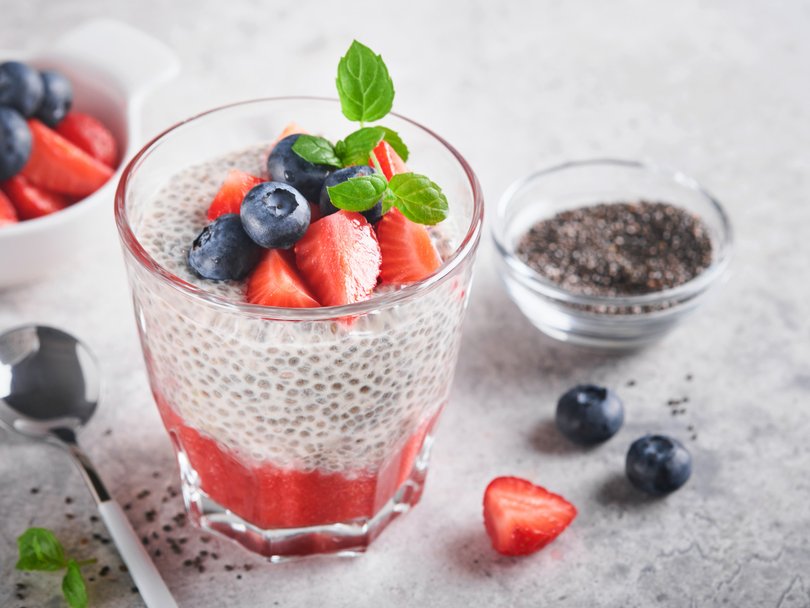SARAH DI LORENZO: Is it ever a good idea to skip breakfast?
SARAH DI LORENZO: Why eating in the morning matters more than you think.

Breakfast is one meal that is always debated. Is it really the most important meal of the day? Is skipping breakfast harmful? How does breakfast impact our metabolism?
The concept of breakfast is actually quite modern. In Ancient Roman times, there was one big meal in the middle of the day. In the middle ages it was the workers, elderly and children who ate breakfast.
The modern idea of breakfast came about with the industrial revolution, factory work meant starting the day with a meal to sustain a day of labour. Breakfast now became a routine as did lunch and dinner. As for the famous quote of breakfast being “the most important meal of the day” well this was smart marketing from John Harvey Kellogg to sell his cereals.
Sign up to The Nightly's newsletters.
Get the first look at the digital newspaper, curated daily stories and breaking headlines delivered to your inbox.
By continuing you agree to our Terms and Privacy Policy.So is skipping breakfast a good idea? In my clinical experience there are very few people who can skip breakfast and feel amazing, most of these people are usually having multiple coffees that suppress appetite. The downsides of skipping breakfast include increased hunger, cravings later in the day that can lead to overeating and poor food choices, as well as disrupted appetite regulation and possible negative effects on our hormones ghrelin and leptin that tell us when we are hungry and full. There is research showing a higher risk of insulin resistance, type 2 diabetes, elevated cholesterol and heart disease. Common breakfast nutrients like fibre, calcium, B vitamins and iron are found in many breakfast meals.
Some people practice intermittent fasting for weight loss but for most the success is minimal. In fact, the breakfast eater has more success in not only weight loss but also long-term weight management, energy, heart health and cognitive performance. High quality randomised studies have demonstrated that skipping breakfast may not be harmful if your diet later in the day is healthy, but for most people eating breakfast works best.
Important considerations with breakfast are young children and adolescents — breakfast means better energy and concentration. Another consideration is we are more sensitive to insulin in the morning than the evening, so what we eat will digest and metabolise much better in the morning.
What is the best breakfast? A well-planned breakfast means feeling full, energised and supporting overall good health. Nutritional guidelines show the meal should include protein, good fats and fibre.
Protein really matters in the morning. High protein foods keep you full and trigger the release of the hormone GLP1 that helps us feel full and satiated. Eggs are a complete protein and also have nutrients like B vitamins, lutein and choline. There is great research showing that eggs for breakfast can often lead to a smaller lunch as they are so filling.

I also recommend Greek yoghurt — it has one and a half times more protein than regular yoghurt, around 20g per serve, and when you top yoghurt with fibre-rich foods like chia and berries, you can support gut health and feel satiated. I also suggest cottage cheese, with around 24g of protein per serve, which in some studies is as filling as eggs.
Include complex carbohydrates that are slow to digest for fibre intake. Think oats with the soluble fibre that forms a gel in the gut keeping you full, plus oats give you a good release of energy. As well, whole grain toast for complex carbohydrates and fibre with butter and cottage cheese, or with eggs and avocado on whole grain toast for the perfect combination.
For healthy fats and micronutrients, nuts and seeds are the perfect breakfast toppers for extra protein, sustained energy and hunger control, plus magnesium.
Also berries and fruit for the additional fibre, vitamins and minerals. Berries are low in calories and full of antioxidants to reduce inflammation and support brain health.
As for beverages, your morning cup of coffee is going to lower your risk of liver disease, suppress your appetite and acutely boost your metabolism. Green tea is also full of antioxidants and caffeine to keep you alert.
I believe that starting your day with a tall glass of water before breakfast is best — rehydrate to feel refreshed and energised.
Other excellent breakfast ideas are eggs and vegetable omelette with avocado on whole grain sourdough, Greek yoghurt with berries and chia, oats with banana and nuts, cottage cheese with fruit and walnuts. These suggestions all fall into the formula of protein and fibre with good fat for feeling full, energy and good health.
A healthy breakfast will set you up for the day, maintain weight, lower risk of chronic disease, stabilise blood sugar, boost concentration and curb cravings.
While there are some people who might do well to skip it, most people don’t — the key is in the quality and a balanced meal.
